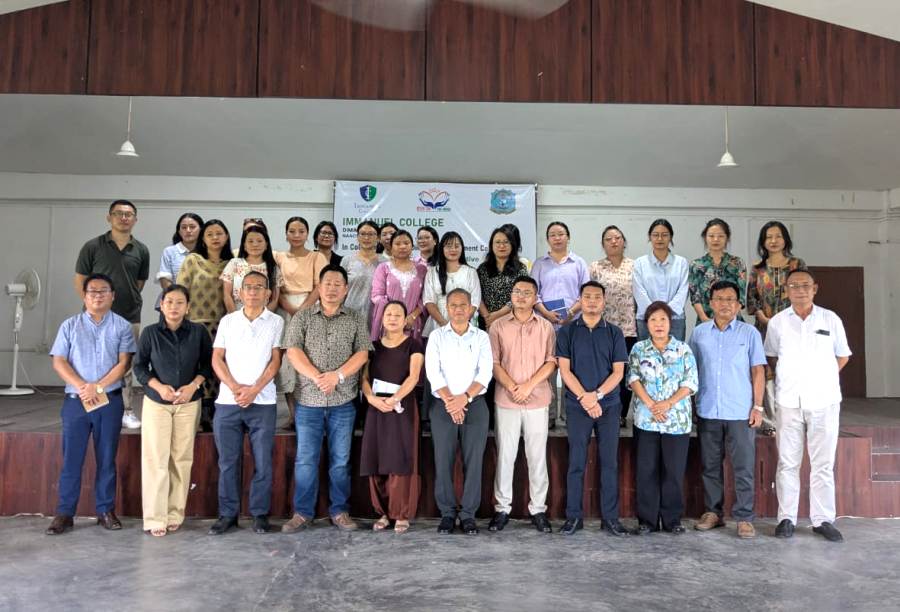Experts at a Dimapur workshop warned of falling groundwater levels and urged rainwater harvesting for sustainable water use.
Share

DIMAPUR — A one-day workshop on “Rainwater harvesting and groundwater recharging” under the theme “Ensuring sustainable water availability” was organised at Immanuel College, Dimapur, on Monday.
The programme was held in collaboration with Dimapur Government College (DGC) under the initiative of the PM-USHA Monitoring Cell, DGC, and funded by the Ministry of Education under PM-USHA, stated an update.
The resource persons, Sendongkaba, assistant geologist, and Henmoi, assistant geologist, from the Directorate of Geology and Mining, Nagaland, Dimapur, presented on groundwater conservation and rainwater harvesting.
They explained the availability of freshwater on Earth, daily water requirements, and the causes and effects of groundwater depletion, such as drying wells, reduced stream flow, poor water quality, and land subsidence.
They highlighted key water issues in India and Dimapur, citing rapid urbanisation, over-extraction, erratic rainfall, and contamination from fertilisers and waste disposal as major concerns.
Also read: RBI, SBI organise campaign on unclaimed deposits in Dimapur
Kohima, Dimapur flagged for poor air quality
Sendongkaba and his team also identified major groundwater consumers in Dimapur, including households, water bottling plants, car washing centres, and construction sites, and warned of declining water levels and deteriorating quality in Dimapur.
The presentation further outlined remedies and conservation measures such as regular well maintenance, maintaining safe distances between tube wells, proper well casing, and avoiding waste dumping in abandoned wells.
The speakers also elaborated on the Nagaland Groundwater (Regulation and Control of Development and Management) Act, 2020, which governs groundwater extraction and promotes responsible usage.
Artificial recharge methods, including rooftop rainwater harvesting, check dams, nala bunds, and gabion structures, were demonstrated, with emphasis on their cost-effectiveness and environmental benefits.
The session concluded with practical tips on household water conservation, urging participants to reduce leakage, reuse water, and adopt simple water-saving habits at home.